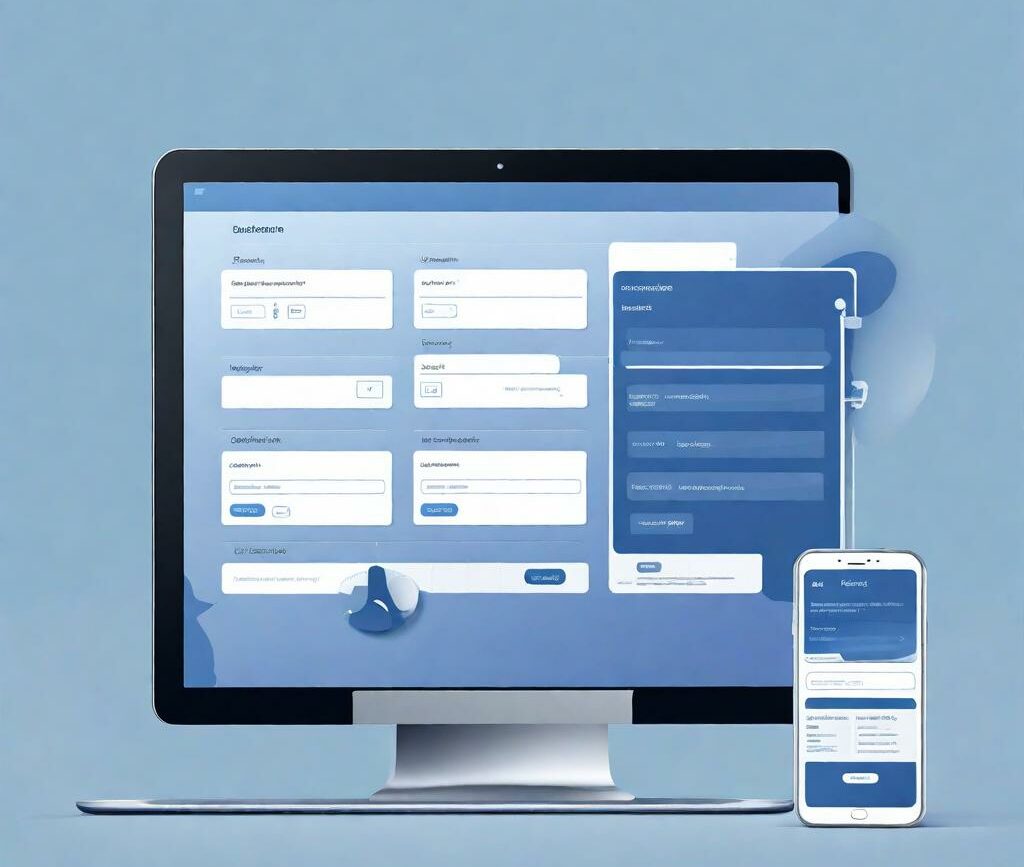
Website accessibility is not just a matter of aesthetics, it is essential for ensuring equal access to information and services for all individuals, regardless of their abilities. It is crucial for estate agencies, like any other business, to design their websites in a way that caters to the needs of all users. This article will explore the importance of website accessibility, the legal and ethical considerations involved, as well as the benefits of creating an inclusive online presence.
Analyzing User Needs for an Accessible Estate Agency Website

An accessible estate agency website should aim to meet the diverse range of users’ needs. This includes individuals with visual impairments, motor disabilities, and hearing impairments. To design a truly accessible website, estate agencies must first identify the specific needs of these users. This can be done through user research and usability testing.
Engaging with disabled individuals to gain insights into their experiences is an important step towards creating an inclusive website. By listening to their feedback and understanding their challenges, estate agencies can better address the specific needs of these users. Conducting comprehensive usability tests with assistive technologies can also provide valuable insights into potential accessibility issues and allow for improvements to be made.
Navigational Accessibility: Ensuring Smooth User Experiences

Navigating a website should be a seamless experience for all users, regardless of their abilities. To achieve this, estate agencies should focus on structuring clear and intuitive navigation. Utilizing descriptive and concise menu labels is vital for users with visual impairments who rely on screen readers to navigate. Implementing a clear hierarchical structure ensures that users can find the information they need easily. Consistent navigation elements throughout the website, such as a fixed header menu, help users maintain context while navigating different pages.
In addition to these basic practices, providing alternative navigation options can enhance accessibility further. Skip navigation links, for example, allow keyboard users to bypass repetitive navigation and go straight to the main content. Including search functionality with robust filters makes it easier for users to find specific information quickly. Breadcrumb navigation provides context and orientation, making it easier for users to understand their location within the website.
Content Accessibility: Making Information Easily Consumable

In an accessible estate agency website, the content should be presented in a way that is easy to consume for all users. This includes individuals with visual impairments, who may rely on screen readers or magnification software. To make the content more accessible, estate agencies should focus on creating accessible text and typography.
Using appropriate font sizes, colors, and contrast ratios ensures that the text is easily readable for all users. Implementing proper heading structures for organized content makes it easier for screen readers to navigate and understand the hierarchy of the information. Offering adjustable text options allows users to customize the text size according to their preferences.
In addition to text, it is important to enhance the accessibility of media on the website. Providing text alternatives for non-text content, such as images, allows users with visual impairments to understand the context of the content. Captioning videos and providing transcripts for audio content ensures that users with hearing impairments can access the information. Optimizing images for screen readers by including appropriate alt text provides a better user experience for visually impaired individuals.
Interaction Accessibility: Facilitating User Engagement

Interaction with the website is a key aspect of the user experience. It is important to optimize forms and input fields to ensure that all users can engage with them effectively. Clear and descriptive labels for form elements are crucial for users with visual impairments who rely on screen readers. Error suggestions and validation alerts help users identify and correct any input errors. Allowing for keyboard-friendly form interactions ensures that users with motor disabilities can complete forms without barriers.
Incorporating assistive technologies support is another important element of interaction accessibility. Estate agencies should ensure compatibility with screen readers and magnification software. This includes testing the website with assistive technologies to identify and address any potential issues. Utilizing ARIA attributes, which provide additional information to assistive technologies, can enhance the overall accessibility of interactive components.
Summary

Designing an accessible estate agency website is a crucial aspect of providing inclusive online experiences. Understanding the importance of website accessibility and the legal and ethical considerations involved is essential. By analyzing user needs, focusing on navigational accessibility, content accessibility, and interaction accessibility, estate agencies can create websites that empower all users. Ensuring accessibility not only benefits individuals with disabilities but also creates a positive and inclusive online presence for estate agencies.
FAQs (Frequently Asked Questions)
Why is website accessibility crucial for estate agencies?
Website accessibility is crucial for estate agencies to ensure equal access to information and services for all individuals, regardless of their abilities. It is a matter of inclusivity and providing a positive user experience.
What are some common accessibility barriers faced by users?
Some common accessibility barriers faced by users include websites with unclear navigation, insufficient color contrast, lack of descriptive text alternatives for media, and inaccessible form fields.
How can I test the accessibility of my estate agency website?
There are several tools and guidelines available to test the accessibility of your website, such as automated accessibility testing tools and WCAG (Web Content Accessibility Guidelines) standards. Conducting usability tests with individuals with disabilities can also provide valuable insights.
Are there any specific legal requirements for website accessibility?
The legal requirements for website accessibility may vary depending on the country or region. It is important for estate agencies to be aware of and comply with the accessibility requirements in their jurisdiction.
What are the consequences of not having an accessible website?
Not having an accessible website can lead to exclusion of individuals with disabilities from accessing information and services. It can also result in legal and reputational consequences for estate agencies.

